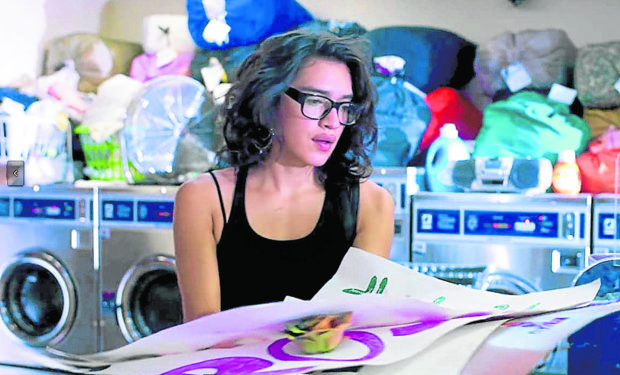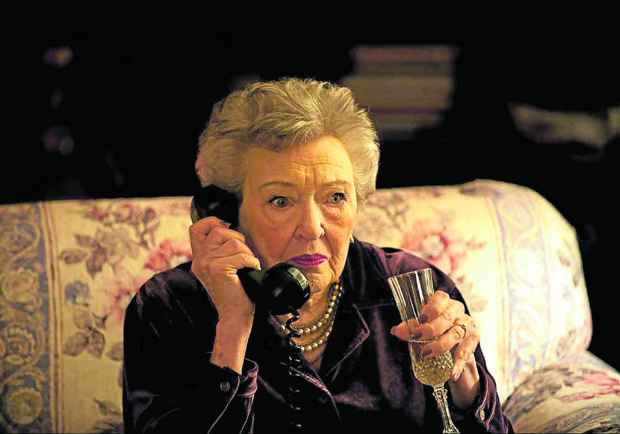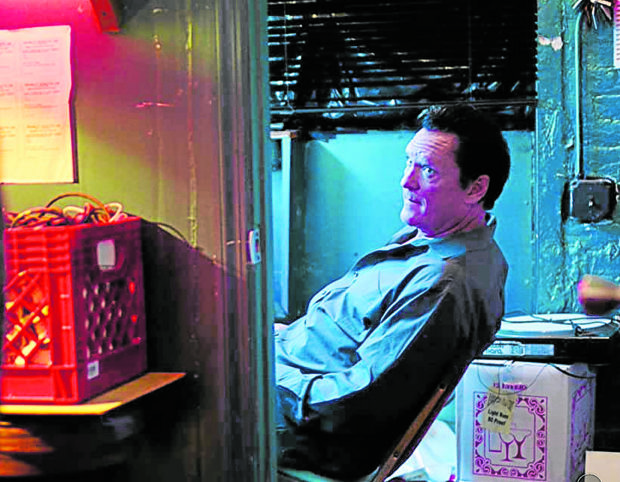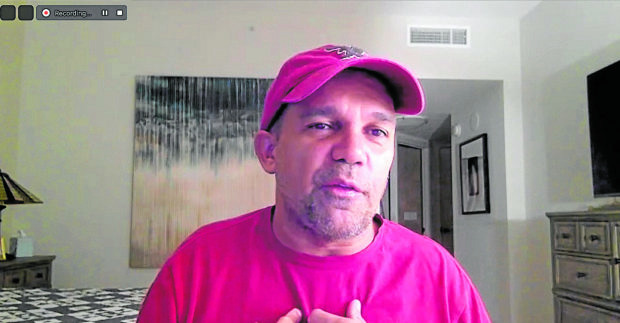Why filmmaker Flavio Alves speaks for the marginalized
One of the best films we’ve seen this year doesn’t feature a Hollywood superstar or an acting luminary from world cinema. Instead, it topbills a lovely trans woman whose thespic chops are as sharp as her director’s thematic sensibility. We’re talking about the film “The Garden Left Behind,” starring Carlie Guevara, Michael Madsen and Ed Asner and helmed with soul-stirring subtlety and grace by Flavio Alves. Along with its long string of accolades, the film won the coveted Audience Award at SXSW (South by Southwest fest) before it was commercially released in the United States in August.
Moreover, Flavio’s “little film that could” has since gotten a formidable 92 percent approval rating from critics on Rotten Tomatoes. It’s up there with the formidable likes of Eliza Hitman’s “Never Rarely Sometimes Always” (99 percent), Chloe Zhao’s “Nomadland” (97 percent), Diao Yinan’s “The Wild Goose Lake” (92 percent), Kitty Green’s “The Assistant” (92 percent), Andrew Patterson’s “The Vast of Night” (92 percent), Spike Lee’s “Da 5 Bloods” (92 percent), Kleber Mendonça Filho’s “Bacurau” (91 percent) and Leigh Whannell’s “The Invisible Man” (91 percent). What a lineup—right, Oscar voters? “The Garden Left Behind” stars trans woman Carlie as 30-year-old transgender Tina, who’s been an undocumented alien since emigrating to New York at age 6 with her grandmother Eliana (Miriam Cruz) from Mexico.
As if themes about immigration, identity and gender equality aren’t enough, the film dares to traipse further into thematic territories involving bigotry, violence against the trans and LGBT communities and women of color as the film thrusts Tina into acknowledging how dangerous apathy is when the aforementioned issues are brought closer to home.
While we were swept off our feet by the thematic pertinence of “Garden,” Flavio’s first full-length feature, we knew its success was no fluke, especially after watching the 51-year-old filmmaker’s quirkily reassuring 2010 short “The Secret Friend,” about a lonely and reclusive old widow (Viola Harris) who finds solace in the “unconventional” friendship she forges with a mysterious caller.
In this exclusive, one-on-one video chat, we told Flavio that his life could even be more cinematic than his delectable filmmaking oeuvre.
Article continues after this advertisementHere is Flavio’s story, in a nutshell: In 1997, he had to flee to America after receiving death threats in Brazil, following the release of his revealing book “Call to Silence,” which chronicled his life as a gay man serving in the Brazilian navy. He was granted political asylum in 1998, earned a Political Science degree at Columbia University, then worked as an assistant to controversial Congressman Anthony Weiner and then-Senator Hillary Clinton.
Article continues after this advertisementIn 2007, Flavio took another exciting turn when he enrolled at New York University to pursue a career in filmmaking—and the rest is history. We asked Flavio to explain his preference for film over politics, given the connections he had managed to make after his years at Columbia.
“I worked with Hillary when she was a senator in New York,” he said. “The focus of my work with her involved immigration and foreign affairs. I did it for two and a half years—and it was a great experience.
“But, filmmaking is different from politics, where you can only do things within a certain framework. In politics, you don’t have much of an option. And that’s what sets the film business apart, where you can tackle themes and trends from one project to the next. “In every film, I can bring something different to the table—and that’s what excites me! I’m more likely to connect with gay men, minority groups and the elderly because I’m also an outsider. I’m neither homeless nor a senior, but I can connect with them at different levels. [As a filmmaker,] the idea is to bridge these communities together because, at the end of the day, we’re all marginalized.”
To celebrate Inquirer’s 35th anniversary this week, we’ve spoken with “Garden’s” charming director, who, like our Indie Bravo luminaries this year, truly embodies your favorite paper’s never-say-die mantra, “Drive to Thrive at 35.”
Our Q&A with Flavio on Zoom:
Is Tina’s story based on someone you know?
Most of my films are about the marginalized and overlooked members of society. I’m a gay man myself. I’m Latino. I was undocumented at one point in my life. So I knew that the story would be about a trans woman who’s also undocumented.
To write the story, I decided to do research and interviewed over 100 trans men and women, as well as advocates and health-care professionals, in New York City. It was only after that when I felt that, OK, I was already capable of writing this story.
At that point, I didn’t know that Tina’s story would end the way it tragically does in the film. I heard so much about violence committed to members of the trans community. I don’t know if it’s as bad in the Philippines as it is in New York, where the trans community is very vulnerable—there’s so much transphobia. And I thought I couldn’t ignore that. I thought it would be a disservice for me not to honor the material I had, especially with the testimonies I’ve gathered from the people I interviewed. But I was also very concerned about how I would end the film because you’re left with the grandma alone. So, I thought I‘d try to finish it on a positive note—to connect more with the audience.
I love how the homophobic homosexual, the closeted Chris (Anthony Abdo), is depicted in it. Because it somehow reminds viewers that some naysayers are actually [closeted] homosexuals. Your thoughts?
Yeah, but it could also be a couple of things. He could be in love with her. He could be struggling with his own gender identity. So, when he tried calling up Tina to connect with her, he couldn’t do it.
Then, there were these microaggressions that just got bigger. No one saw it coming! Because most cases of violence come from people they already know—from family members, neighbors and loved ones.
Is it true that you hired about 50 trans people to work in the production?
Yeah, to be more precise, we had 48 trans men and trans women who worked in front and behind the camera. And the reason I did it is because representation is important to me. I didn’t want a story that would perpetuate misrepresentation. I wanted the film to be authentic. This would help enable people to tell their own stories, because this is about opening doors.
You capture sadness and melancholy like you know them so well. How did you channel all of that?
Yes, they come from that perspective of sadness. Because if that story were told in a positive light, perhaps in the form of comedy, I don’t think it would reach as wide an audience as it has. My whole idea of making a film is to spark debate.
Take “My Secret Friend,” for example. It’s about this isolated, elderly woman who has nothing. Then, she starts getting calls from a silent caller, who becomes her best friend. Eventually, she becomes the next secret friend.
How long did it take you to finish the shoot? Was it expensive?
Making films is an expensive business, but I was aided by grants. I made it under a million dollars. It took us six years to make this film. We started talking to the trans community in 2015, shot the film in 2016. It took us two years to edit the film and raise more money to finish it. We released the film in 2019 at SXSW and won the Audience Award. Then, the film came out this year.
Isabel Sandoval’s “Lingua Franca,” which is very good, was made over a shorter period. It took us longer because we treated it like a documentary, given the testimonies and how we put the story together.
What are you working on now?
There are three films in the pipeline, although I still don’t know which one is going to be made first.
What kind of satisfaction do you get out of filmmaking that’s different from law or politics?
I became a filmmaker because I was attracted to the dream that I could make a difference in people’s lives. So, seeing people respond to my films is what drives me to keep telling stories.
Having worked with Hillary Clinton, do you think she would have done a good job had she won the presidency? Joe Biden a couple of tries before he became one, so Hillary, who’s younger, could still make another go at it in the future.
Oh, I love Hillary. Yes, she would have been wonderful!
Do you have any regrets about leaving Brazil at all?
You have to see this way: Every time I find a roadblock, I don’t take it personally. Yes, I was kicked out of my country. When I came here, I was upset because I had a good life in Brazil. I could not speak English. I didn’t have legal papers, so I could not work.
I had to start my life anew. I washed dishes, worked in a restaurant, and did the jobs that Americans didn’t want to do. For someone who had a good life in Brazil, starting from scratch in America was difficult.
But I didn’t see that as an obstacle I had to overcome. I never look back. Yes, I have reasons to be upset about what happened to me, but if I spend my time crying and complaining about life, this is a time that I could be spending doing something else and getting to know myself better. I just worked hard and eventually found my way back on top again. America is not for everyone. I’ve seen people come to America, who then returned to Brazil when they realized this wasn’t for them. But I didn’t have an option. I could not return to Brazil, I lost my passport. I was a stateless person. So, America was the only thing I had, and I had to make it work. It’s about overcoming challenges and becoming a better person along the way.
But I don’t spend much time looking back and thinking what my life would’ve been if I had not left Brazil. Maybe I would have been killed. Here’s what I do: When I see a huge hall with a lot of closed doors, I keep knocking on them. The first door that opens, I cross it—that’s how I do it! INQ



